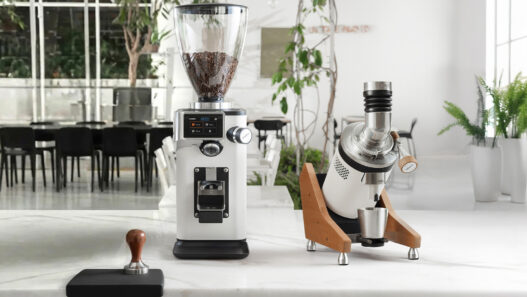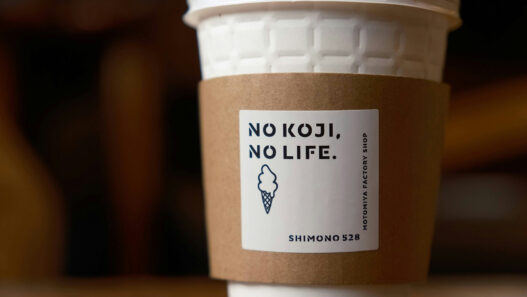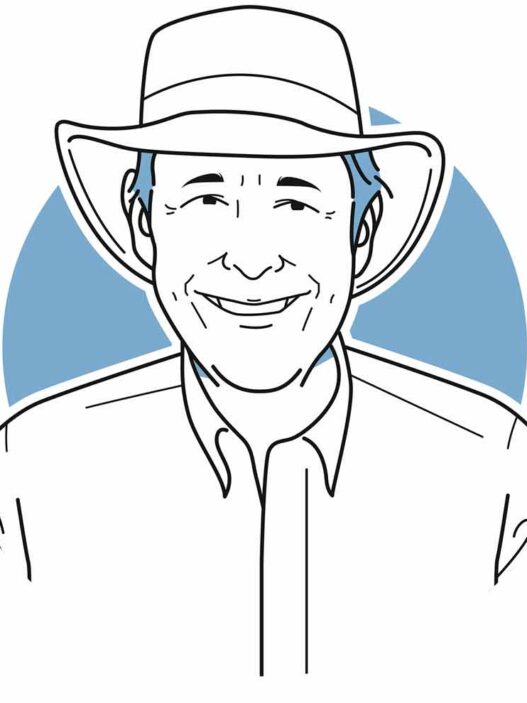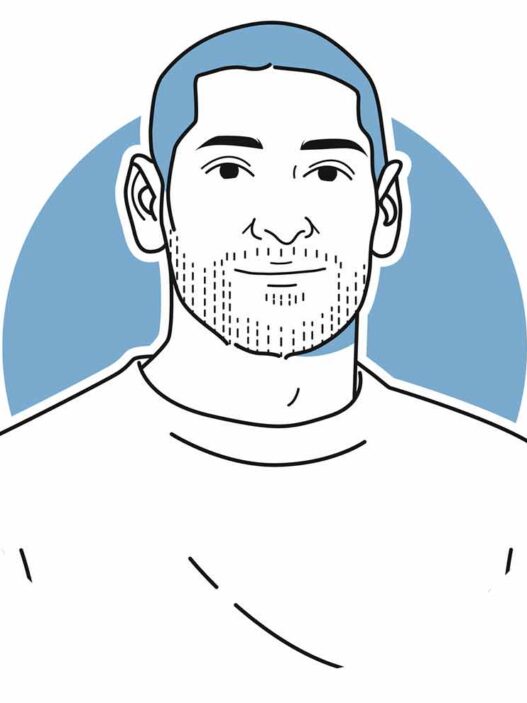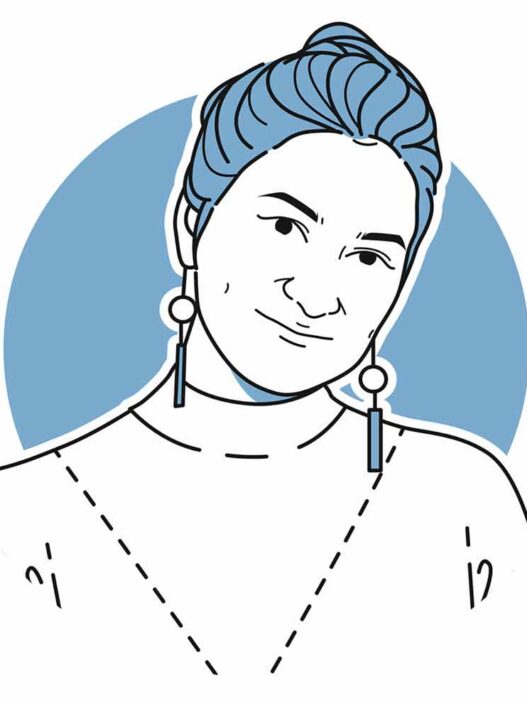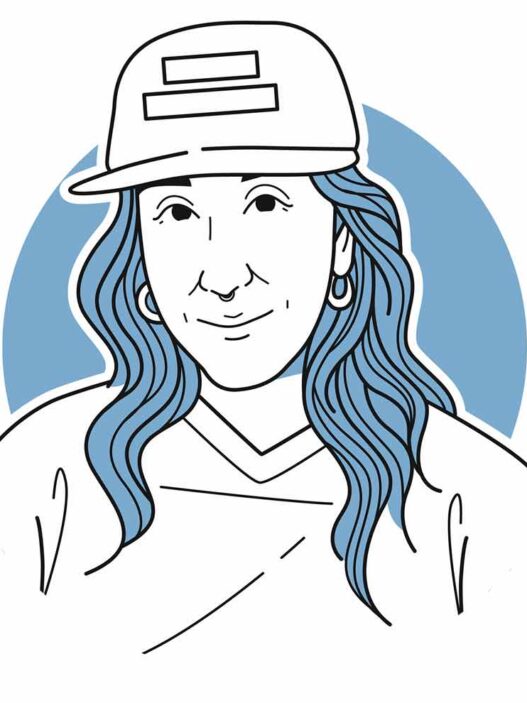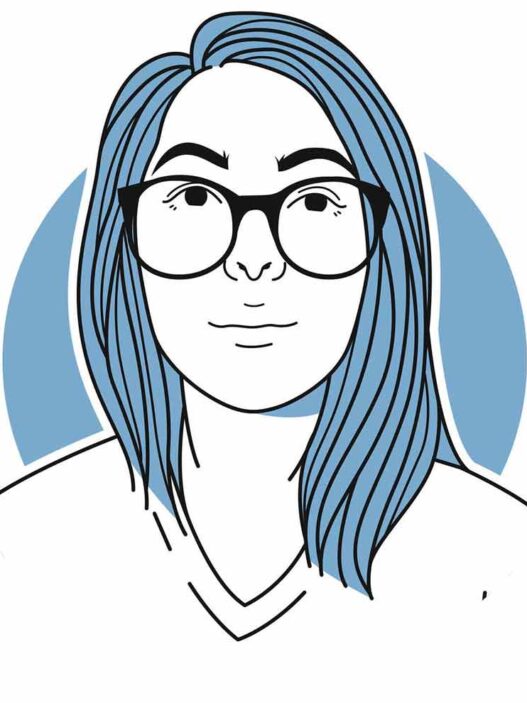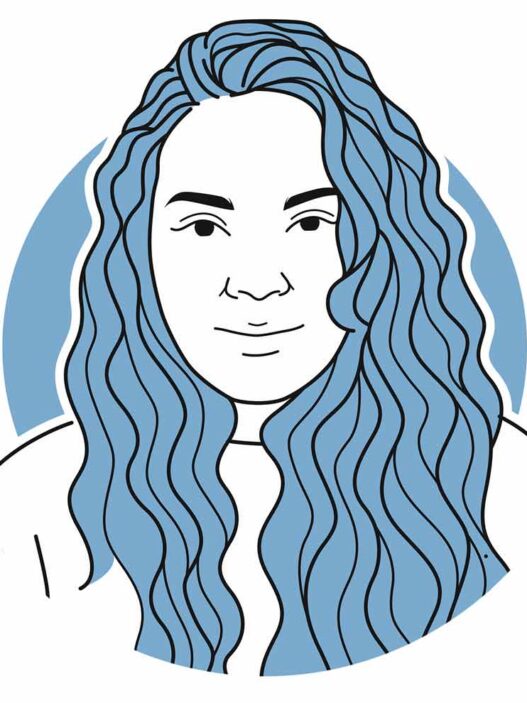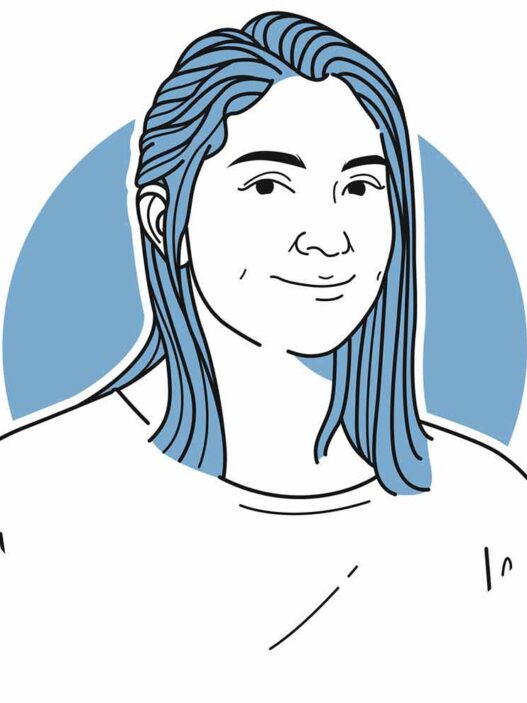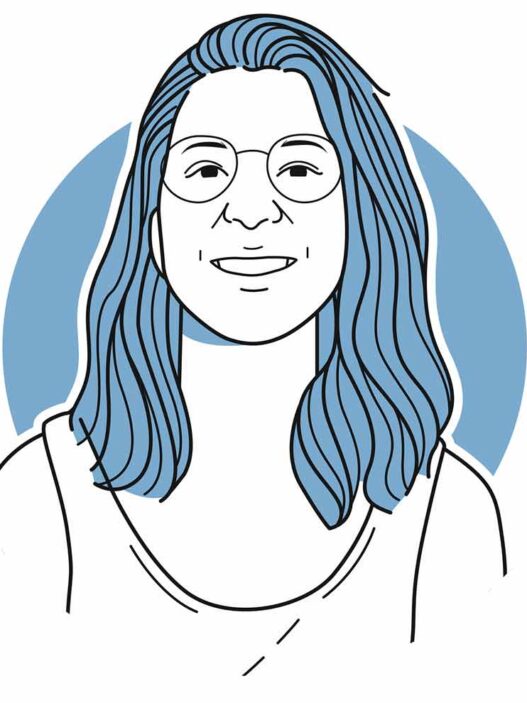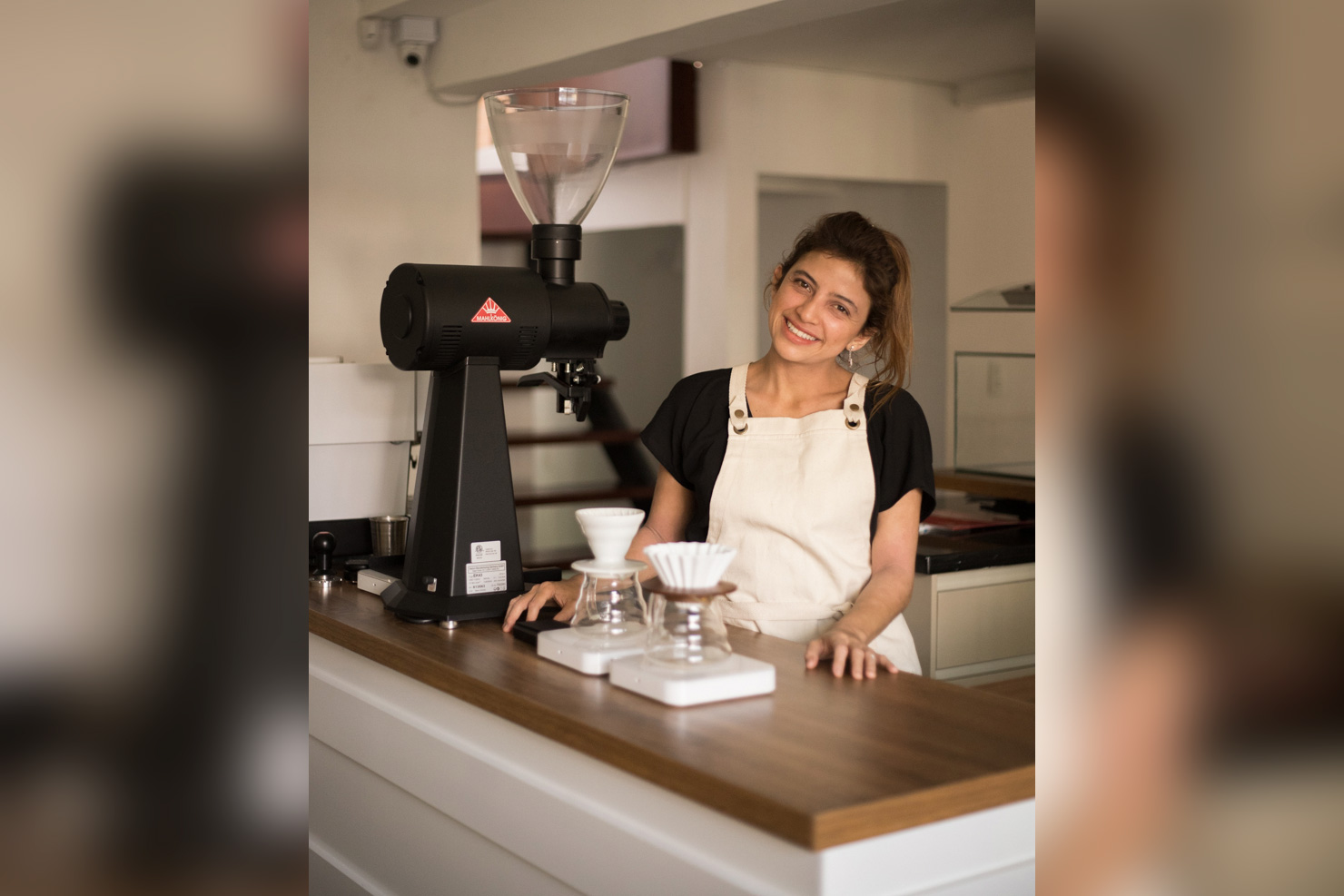
Welcome to The Sprudge Twenty Interviews presented by Pacific Barista Series. For a complete list of 2020 Sprudge Twenty honorees please visit sprudge.com/twenty.
“Angie and her husband Jhon founded Insignia Coffee. Angie is a dedicated, passionate, and exceptional in the specialty coffee industry in Colombia. She volunteers her time to help others, is a dedicated volunteer in coffee events, and works with many coffee farmers and organizations.”
Nominated by Paul Kevin Doyle
How has the COVID 19 pandemic impacted you personally and professionally?
This has been definitely a challenging time as we recently expanded into a bigger place, meaning higher fixed costs and responsibilities. Our shop had been opened for a month and then had to close a month later, but luckily our roastery is still running so this has been an opportunity to improve our online presence and online sales channels and to promote the local consumption of specialty coffees, so we have noticed more interest from our clients to buy delicious coffees roasted at origin. And professionally this brings me a new challenge to keep making specialty coffee accessible to the normal coffee drinker. On the personal side, the quarantine has been the right time for me to prioritize my health. I’ve been fighting a disease for the last 11 months called “Topical Steroids Addiction” (a bit of awareness here, do not over use topical steroids to solve skin conditions, the withdrawal is a horrible process that thousands of people are going through right now including me and has not been diagnosed by doctors), so being stuck at home has allowed me to slow down and take care of myself. Fortunately I’m healing faster and it would have never been possible if I were working like I normally do.
Is there any donation fund or resource in your community we can share with our readers?
Not really a donation fund but a great initiative to promote coffee professionals in Colombia! Next to a group of coffee professionals, we have created something called “Foro Colombiano de Profesionales en Café,” which in English would be the Colombian Coffee Forum of Coffee Professionals with the aim to share knowledge, gather, and create new spaces to interact with the local coffee community. Right now we’ve been discussing ways of facing this crisis and it would be great to connect through the forum with other organizations in the world in order to find more support.
What issue in coffee do you care about most?
The fair remuneration of the entire value chain. I’m constantly watching the dynamic of the industry from the producer perspective but also from the business owner’s perspective and I think that in order to keep healthy relationships with our producers and clients, we have to be transparent and fair in what part of the cake we are getting. Every person involved in the process of producing, selling, and making a cup of coffee deserves to be fairly remunerated for their job, which is not always the case. Through our company we’ve been trying to make things a little bit different, which has allowed us to find the right partners in order to move forward together.
What cause or element in coffee drives you?
Promoting the local specialty coffee consumption in my country. My coffee background started in Paris seven years ago. This was what made me realize how bad coffee is that we drink in Colombia, so I went back to my country with the mission of positioning specialty coffees, both locally and internationally, but really pushing for increasing the appreciation for great coffee and buying local. I was amazed to see some numbers regarding the huge amount of coffee being imported by big companies to Colombia from Honduras, Ecuador, and Brazil that is being promoted as Colombian coffee. 50% of the coffee we drink through big commercial brands in Colombia comes from Honduras! So there is a lot of work ahead for the specialty coffee community in regards to making good and local (sad to say it) coffee accessible in our country.
What issue in coffee do you think is critically overlooked?
Coffee education for professionals adapted to the local needs. This might be a controversial subject but accessing a quality coffee education has been quite expensive for a very long time. We want professional baristas, roasters, and cuppers at origin but many of them can’t access these qualifications easily. So many of them learn empirically, and it takes them more time to be aligned with what the international specialty coffee community wants. There should be more investment in coffee education from green buyers that are aligned with the international standards in producing countries. We are now approaching the 4th wave where we as professionals being part of a whole value chain need to be more connected. This will as a result allow us to make better buying decisions in how to impact our communities in producing countries.
What is the quality you like best about coffee?
Nice, crisp and complex acidity.
Did you experience a life-changing moment of coffee revelation early in your career?
Yes, and it’s very special, there is a whole story behind but it was basically how I met my now husband. In 2015 I had a heartbreak and literally I was so disappointed and hopeless, so while finding some distraction I started to do some research on the coffee community and the AeroPress method and found many Facebook fan pages from many countries so I thought, “let’s join the Colombia AeroPress group.” But there wasn’t one, so I created it. I invited the handful of people I knew in coffee at that time and after three days my now husband joined the group so a beautiful love coffee story started… :)
What is your idea of coffee happiness?
Shipping our specialty Colombian coffees roasted at origin worldwide.
If you could have any job in the coffee industry, what would it be and why?
When I first started, I always wanted to be on the green beans sourcing and exporting. Although it is a big responsibility, it gives you a very dynamic lifestyle like traveling to different regions, talking with the producers and clients, and being able to control how coffee goes from one place to another. This is some how what little by little we are starting to do with our company.
Who are your coffee heroes?
My husband, he is a truly coffee hero. I have been so lucky to have a partner who can understand deeply the reality of a coffee producer. He is always looking for ways to support the community, his curiosity and professionalism have allowed him to have key roles in different local projects that have changed the life of many coffee producers in Tolima. I’m really proud of him! Also Jonathan Gagné from Canada is doing a fantastic job in exploring filter coffee brewing at the scientific level, and Veronica Belchior and Fabiana Carvalho from Brazil who have been consistently spreading knowledge related to the multi-sensory perception and sensory quality analysis of specialty coffees.
If you could drink coffee with anyone, living or dead, who would it be and why?
There is someone I really like and whose business model I admire and I would definitely have a coffee with, Anne Lunell of Koppi Roasters in Sweden at their roastery! I feel like she has found the formula to keep everything simpl. I bet she has worked so hard to be where she and her partner are now with their business, but I just love how their philosophy of life is represented by their brand and I would love to learn more about that!
If you didn’t work in coffee what do you think you’d be doing instead?
I think I would be working in sustainability strategies for the food or the fashion industry and traveling a lot. I’ve been always so conscious about how fast we go in our daily lives that we don’t even realize the harm we do to our bodies and our environment. Since I’m fighting this disease I have realized that we don’t need so many things in our lives and somehow this challenging situation is putting me back in what I initially wanted to do with my life. Now I’m lucky that I also know coffee and I can put together some more projects in the future!
Do you have any coffee mentors?
Oh, yes! What I would have done without a couple of people I met on the way growing as coffee professionals. So there are two. Rob Dunne co-creator of Coffee Masters. I met him back in 2015 at the New York Coffee Festival when I was volunteering at Coffee Masters, where my passion for competing was born. He’s an amazing person who shared with me so many things that opened my mind to do things in this industry in a different way when I was just starting. Unfortunately, Rob is no longer actively working in the coffee industry but to me he is an inspiring entrepreneur and excellent professional in whatever he does. Also, Régine Guion Firmin AST, who I met while volunteering at the New York Coffee Festival. She is pure charisma and strength, her commitment to teaching has made her cross borders and be where she deserves to be, creating coffee schools in producing countries such as Kenya. Régine is always there for me in the long-distance no matter what.
What do you wish someone would’ve told you when you were first starting out in coffee?
To make as many good contacts as I could while living in Europe. I have many good coffee friends but I wish I would have spent more time learning from them when I first started.
Name three coffee apparatuses you couldn’t do without.
My Comandante grinder, a scale, and a dripper.
Best song to brew coffee to at the moment.
Love Song of Tesla
Where do you see yourself in 2040?
I see my self living a simple life, in a coffee farm that our green bean clients/friends can visit, probably growing my own food, and traveling!
What’s your favorite coffee at the moment?
A beautiful Ethiopian variety grown in Colombia produced by my very good friend Paul Kevin Doyle. A coffee I competed with earlier this year at the National Brewers Cup.
What do you see as coffee’s role in the ongoing struggle for civil rights and racial equality?
Coffee is the most diverse social network I have ever seen in my life. Its value chain includes people from many different backgrounds, cultures, ethnic groups, and religions that are sometimes overlooked by the end consumer. So today’s coffee’s role is to show more of this so we can realize how inclusive we need to be as we depend on each other to keep striving for delivering one of the most desired products around the world.
Are there any activists, authors, public speakers, or experts you’d like to encourage our readers to engage with?
Mayra Powell from Royal Coffee. Mayra and her husband have been a great example of activism in the community they work with in Santa Helena, Honduras. She has a beautiful documentary on how she’s been promoting diversification in smallholders in order to have a better quality of life.
The Sprudge Twenty Interviews are presented in partnership by Sprudge & Pacific Barista Series. For a complete list of 2020 Sprudge Twenty honorees and a complete interview archive, please visit sprudge.com/twenty.








